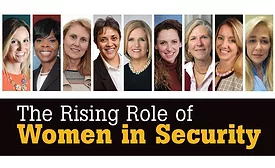Home » Keywords: » security mentorship
Items Tagged with 'security mentorship'
ARTICLES
Special Report
One consistent recommendation among most security leaders is to find a mentor.
Read More
Special Report
Confidence Staveley | Women in Security 2024
Founder — CyberSafe Foundation
July 2, 2024
Special Report
Dr. Iretioluwa Akerele | Women in Security 2024
Co-Founder — CyBlack
July 2, 2024
Special Report
Claire Campbell | Women in Security 2024
Chief Security Officer — Moneycorp
July 2, 2024
Security leadership: 2021 Women in Security
Get a glimpse into the professional journeys and backgrounds of 13 very talented and skilled enterprise security leaders.
July 6, 2021
Conversations and Perspectives from the Security 500 Conference
No matter how long you've been in the security industry, there is always something new to learn.
December 1, 2018
2018 Security Leadership Issue: The Rising Role of Women in Security
In the historically male-oriented security field, many women are successfully advancing to leadership roles.
June 1, 2018
2017 Security Leadership Issue: The Road Less Traveled - Engaging Millennials in Security Leadership
A career in security is often the road less traveled, but that needs to change in order to ensure future success of the profession and industry.
June 1, 2017
Sign-up to receive top management & result-driven techniques in the industry.
Join over 20,000+ industry leaders who receive our premium content.
SIGN UP TODAY!Copyright ©2025. All Rights Reserved BNP Media.
Design, CMS, Hosting & Web Development :: ePublishing
















